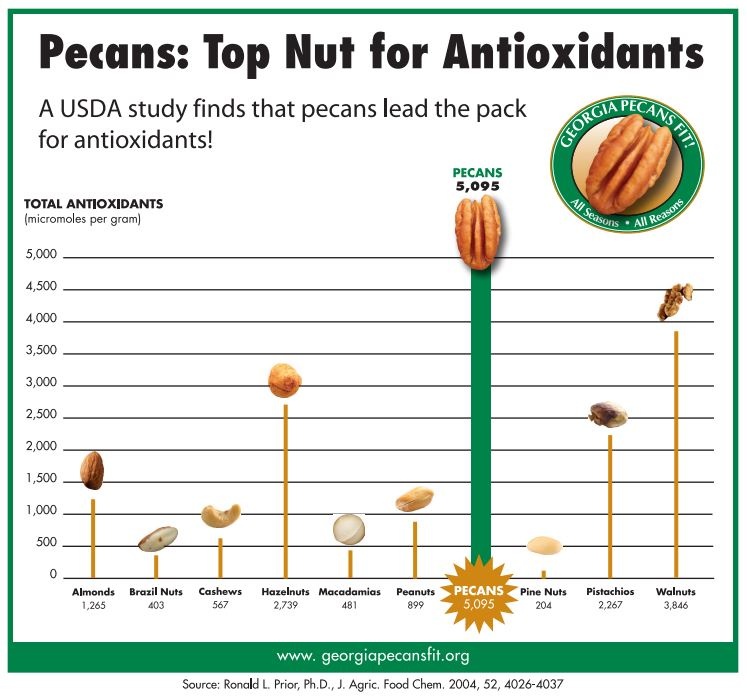When exploring dietary choices, especially for the health-conscious youth, the quest for nutrient-dense foods is paramount. One such contender that has gained considerable attention is the pecan. With its rich flavor and versatility, the pecan is much more than just a tasty addition to your favorite dishes. A common question that arises among nutrition enthusiasts is whether pecans are high in potassium. Let’s delve deeper into this intriguing inquiry and unearth the nutritional benefits and value pecans bring to the table.
The Nutritional Profile of Pecans
Pecans are a member of the hickory family and are native to North America. A single ounce of pecans (around 28 grams) typically contains approximately 196 calories, 3 grams of protein, and a rich array of healthy fats—chiefly monounsaturated fats—which are beneficial for heart health. While the spotlight often shines on protein and fat content, it’s essential to focus on the micronutrient aspects, particularly potassium.
Understanding Potassium
Potassium is an essential mineral that plays a crucial role in bodily functions, including nerve signaling, muscle contractions, and maintaining fluid balance. It is particularly vital for younger individuals engaging in physical activities, as adequate potassium levels can enhance muscle function and reduce cramps. With a Recommended Dietary Allowance (RDA) of 2,500 to 3,000 mg for most adults, sourcing potassium from various foods is essential.
Pecans and Their Potassium Content
While pecans are not the highest source of potassium, they do contribute a notable amount. An ounce of pecans provides approximately 116 mg of potassium. To put this into perspective, this is about 2.5% of the RDA for adults. For the health-conscious youth seeking to optimize their diets, every bit counts, and integrating pecans can be part of a larger strategy to meet potassium requirements.
Pecan Possibilities: Incorporating Them into a Healthy Diet
Integrating pecans into your diet can be an enjoyable experience. They are incredibly versatile and can be used in a multitude of dishes. Here are several creative ways to incorporate pecans into your culinary repertoire:
- Salads: Sprinkle chopped pecans over leafy greens to add a delightful crunch and a nutty flavor.
- Smoothies: Blend a handful of pecans into smoothies for added creaminess and a nutritious boost.
- Baking: Use pecans in baked goods such as muffins, bread, or cookies to bring a rich flavor and texture.
- Nut Butters: Transform pecans into a homemade nut butter for a breakfast spread that’s both tasty and nutrient-rich.
Comparative Analysis: Pecans Versus Other Nut Options
When considering potassium-rich options, it’s beneficial to compare pecans to other popular nuts. For instance, an ounce of pistachios boasts about 300 mg of potassium, while cashews offer around 250 mg. Almonds provide approximately 200 mg. This comparison highlights that while pecans may not be the front-runner in potassium content, they still provide a respectable amount. However, due to their other health benefits, including antioxidants, heart-healthy fats, and fiber, they still merit inclusion in a balanced diet.
Health Benefits Beyond Potassium
In addition to potassium, pecans are loaded with beneficial nutrients that align with a healthy lifestyle. Here are a few reasons to add pecans to your snack list:
- Rich in Antioxidants: Pecans contain high levels of antioxidants, including vitamin E, which help combat oxidative stress and inflammation.
- Heart Health: The monounsaturated fats found in pecans can help lower bad cholesterol levels, contributing to cardiovascular health.
- Fiber Content: With about 3 grams of fiber per ounce, pecans can aid digestion and promote satiety.
The Bottom Line: Are Pecans High in Potassium?
While pecans may not top the list of foods high in potassium, their moderate content, combined with a multitude of other health benefits, makes them a valuable addition to a youthful diet. If you’re looking to bolster your potassium intake, consider balancing your diet with a variety of potassium-rich foods, including fruits, vegetables, and other nuts.
Finally, the journey towards nutritional enlightenment is not merely about numbers. It’s about enjoyable eating experiences and discovering new flavor profiles, textures, and combinations. With their unique taste, versatility, and health benefits, pecans serve not only as a delightful snack but also as a nutritious ally in your pursuit of health. So, next time you reach for a handful of nuts, consider pecans as part of your vibrant, health-packed lifestyle.

